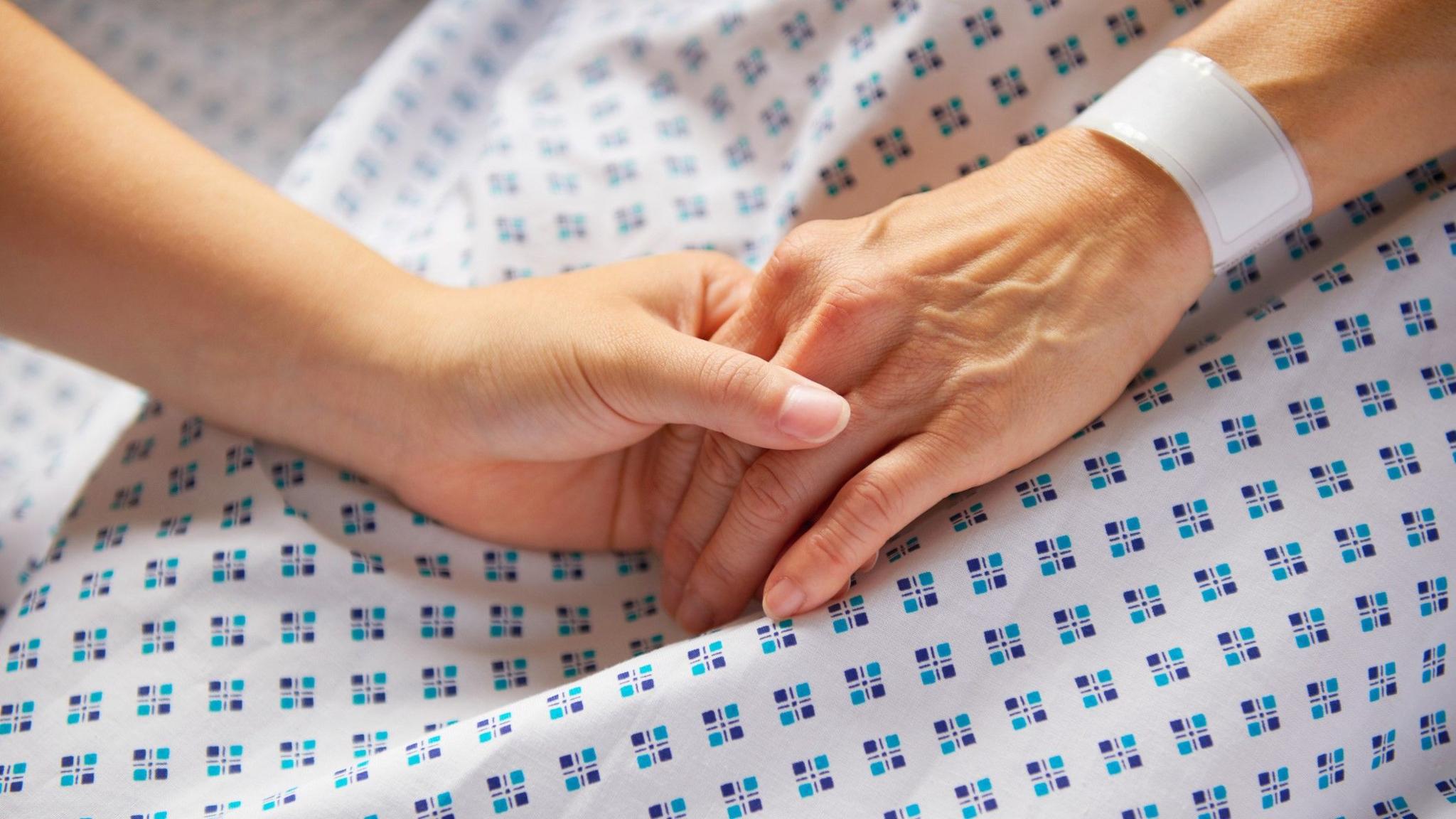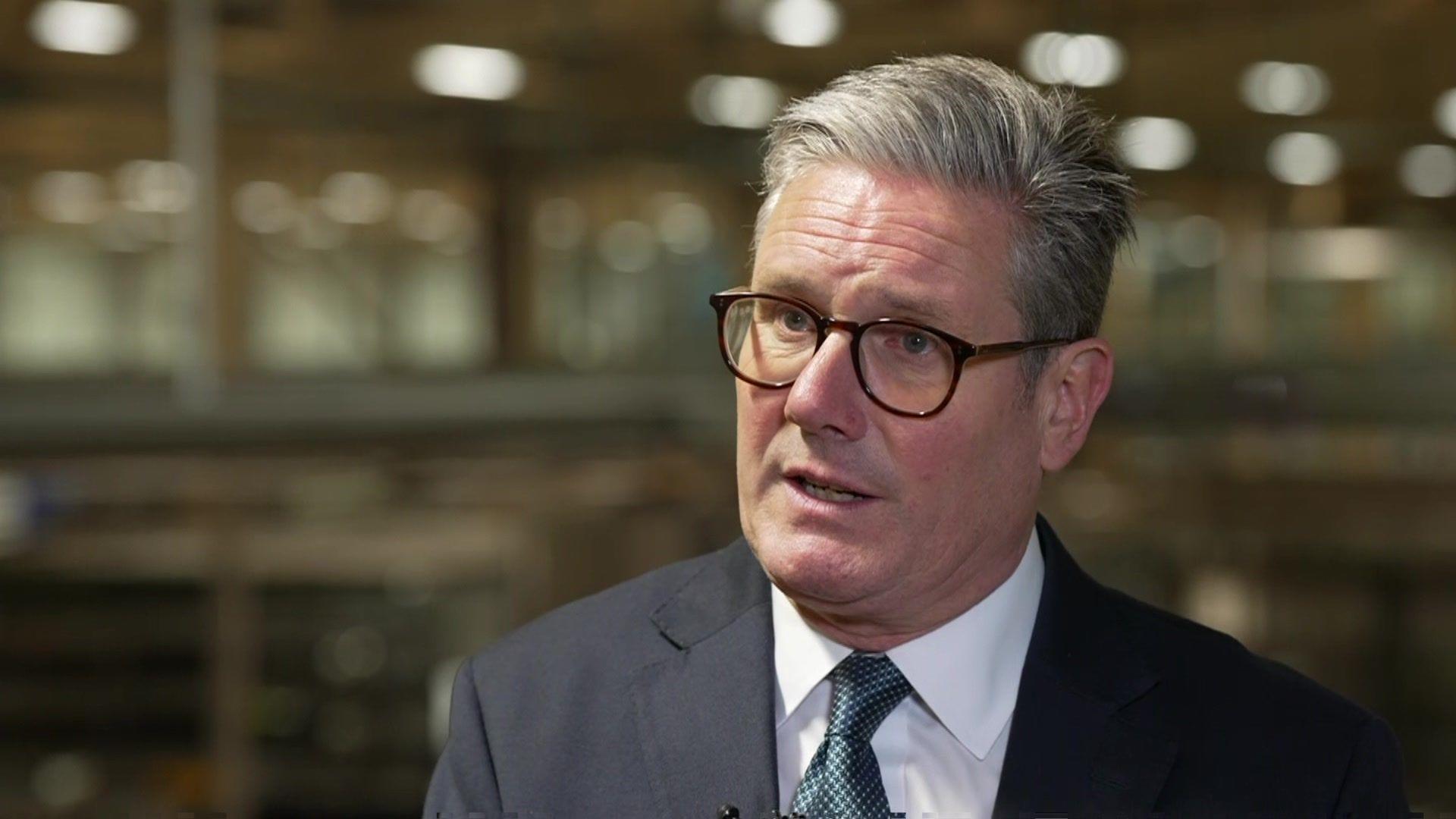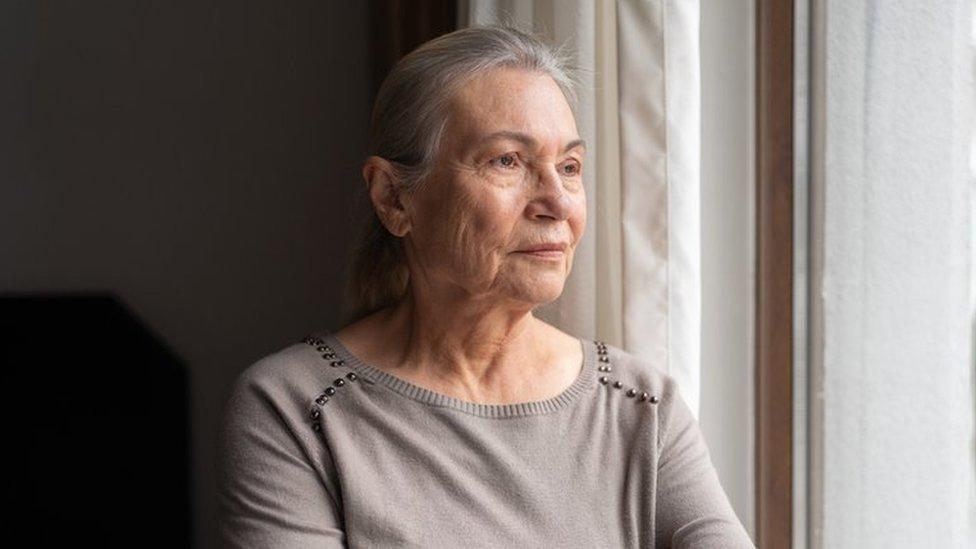Assisted dying bill dangerous, says Archbishop
Watch: Archbishop of Canterbury warns of "slippery slope" on assisted dying
- Published
The Archbishop of Canterbury has called the idea of assisted dying "dangerous" and suggested it would lead to a “slippery slope” where more people would feel compelled to have their life ended medically.
The head of the Church of England was speaking with the BBC ahead of the first reading in Parliament of a bill that would give terminally ill people in England and Wales the right to end their lives.
Kim Leadbeater, the MP who introduced the bill on Wednesday, told the BBC she disagrees with the archbishop’s “slippery slope” argument, saying their proposal is for people who are terminally ill and suffering at the end of their life.
Polling in recent years has consistently shown 60-75% of the British public supports such a law.
Forms of assisted dying are legal in several countries around the world – and supporters say the UK could benefit from looking at where those systems have operated best.
But Archbishop Justin Welby told the BBC he believed legalising assisted dying “opens the way to it broadening out, such that people who are not in that situation [terminally ill] asking for this, or feeling pressured to ask for it”.
He and 25 other Church of England bishops and archbishops have seats in the House of Lords and can vote on legislation.
“For 30 years as a priest I've sat with people at their bedside. And people have said, ‘I want my mum, I want my daughter, I want my brother to go because this is so horrible,’” he said.
He said that, as a teenager, he had sometimes harboured similar thoughts about his own father in the final years of his life. He also referred to the death of his mother, Jane, 93, last year, saying she had described feeling like a “burden”.
But he said he did not want people to feel guilty for having such thoughts and added he was worried people would feel compelled to ask to die if they felt like a burden - an idea he said was wrong.
He said he had noted a marked degradation in his lifetime of the idea that “everyone, however useful they are, is of equal worth to society”. He said the disabled, ill and elderly were often overlooked, in a way that would have an impact on whether they might access assisted dying.
But Kim Leadbeater, the Labour MP who introduced the assisted dying bill to Parliament, said the bill was only about terminally ill people, not people with disabilities or mental health conditions, and there would be clear criteria set for access, as well as medical and judicial safeguards.
"There has to be a change in the law. I'm very clear about that. But we've got to get the detail right,” she told Victoria Derbyshire on BBC Newsnight on Tuesday.
"The status quo is not fit for purpose and unfortunately I have spent time with lots of families who have been through similar, horrendous, end of life situations and that was one of the reasons I wanted to put this legislation forward."
Members of the public have also expressed support for the government taking action on enacting such laws.
One woman told the BBC her 54-year-old husband had suffered from Huntington's, an incurable degenerative condition, and had tried to take his own life three times because he wanted to go before the condition "robbed him of his dignity".
Jane Vervoorts said her husband Dick, eventually died with a number of police officers and paramedics around his bed. She was subsequently investigated and says she was "made to feel like a murderer", before the police decided it was not a criminal matter.
She said they had talked about Dignitas - the Swiss clinic offering assisted dying for the terminally ill - but could not afford to go and " I would have been in trouble for taking him".
Sarah Wootton, chief executive of campaign group Dignity in Dying, described the bill as a "historic opportunity" and said the ban on assisted dying was "forcing terminally ill people to suffer despite the best care, spend their life savings travelling to Switzerland, or take matters into their own hands at home, with relatives often left traumatised".
Dr Gordon Macdonald, chief executive of Care Not Killing described the latest plan to try to legalise assisted suicide or euthanasia as “dangerous” and “ideological”.
He said: “No doubt, there will be those who claim that legalising assisted suicide or euthanasia is progressive, but it is not...Instead, I strongly urge politicians and the Government to focus on fixing our broken palliative care system."
Assisted dying has been one of the main issues prompting discussion over the presence of religious figures in parliament.
Secular groups in the UK have long called for religion to be removed from the debate and even for senior bishops to lose their right to sit in the House of Lords where they can vote on the matter.
The last time the topic was voted on at General Synod in 2022, only 7% of the Church of England’s national assembly said they supported a change in the law.
That contrasts with the strong majorities in favour of the law reflected in public polling.
“There will be people who look at that and say the Church is totally out of touch, that they totally disagree with us, and say they are going nowhere near a church, but we don't do things on the basis of opinion polls,” the Archbishop of Canterbury told the BBC.
Last week Cardinal Vincent Nichols, head of the Catholic Church in England and Wales, also urged Catholics to write to their MPs to express their opposition to assisted dying.
But it is the Church of England that also has the privilege of being the “established Church” in England, and it is 26 Church of England bishops and archbishops who automatically get seats in the House of Lords.
A second reading of the bill will be heard in Parliament on Friday 29 November.

Sign up for our Politics Essential newsletter to read top political analysis, gain insight from across the UK and stay up to speed with the big moments. It’ll be delivered straight to your inbox every weekday.
- Published4 October 2024

- Published4 October 2024

